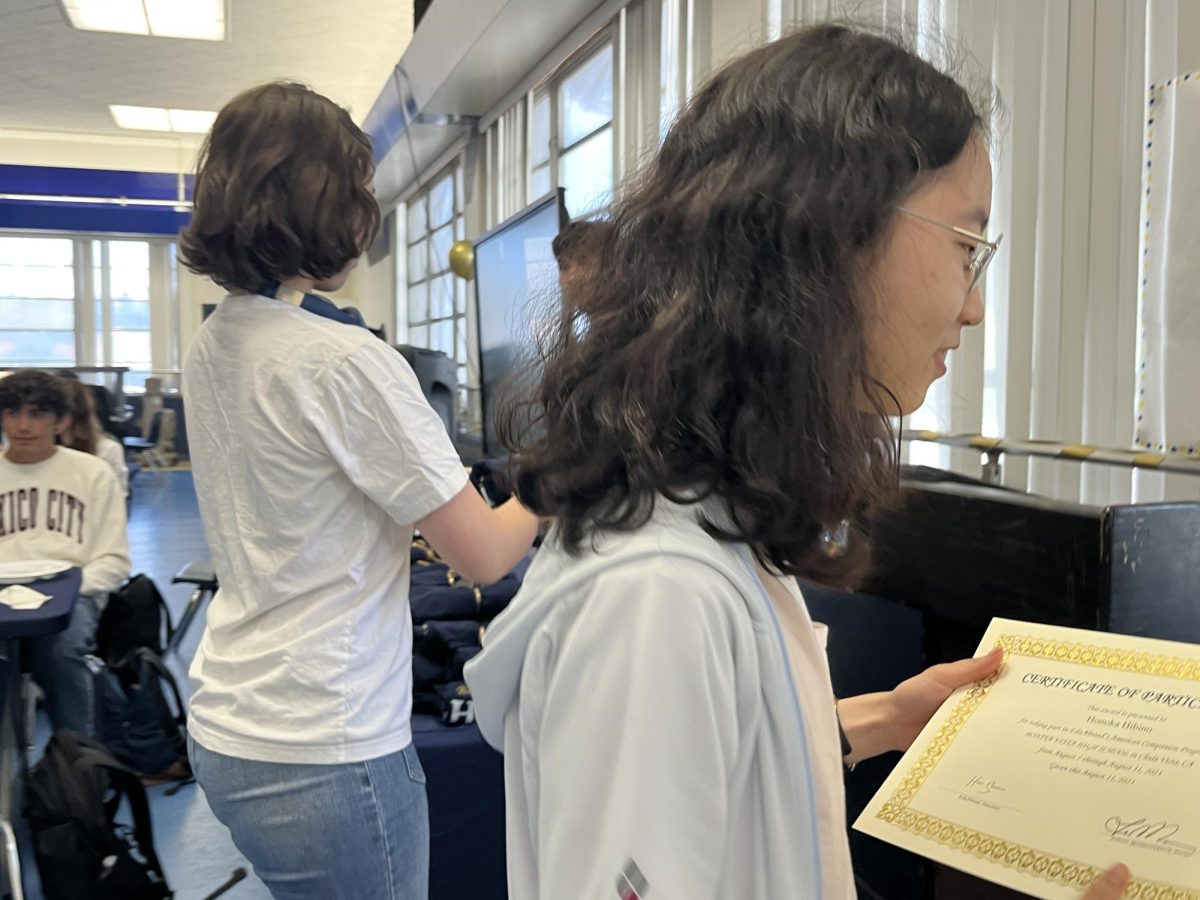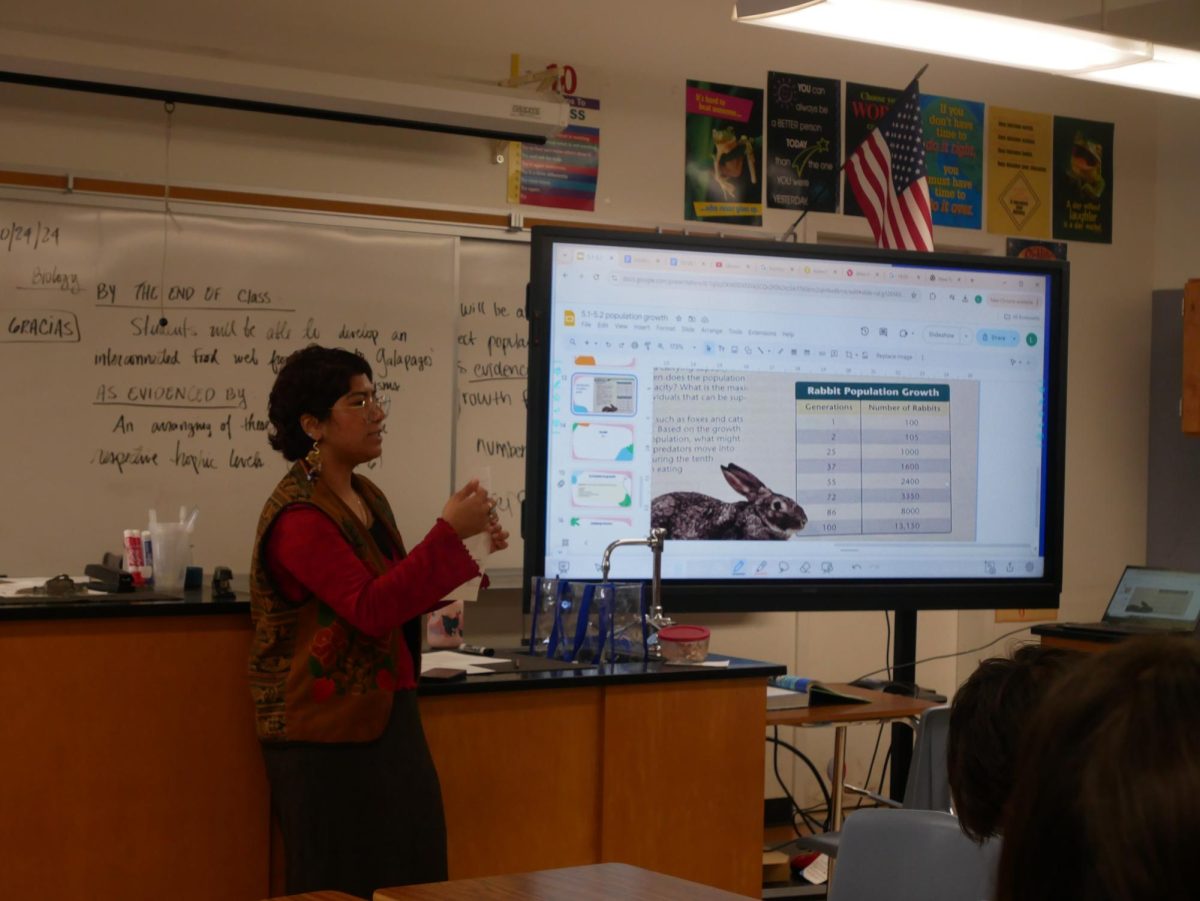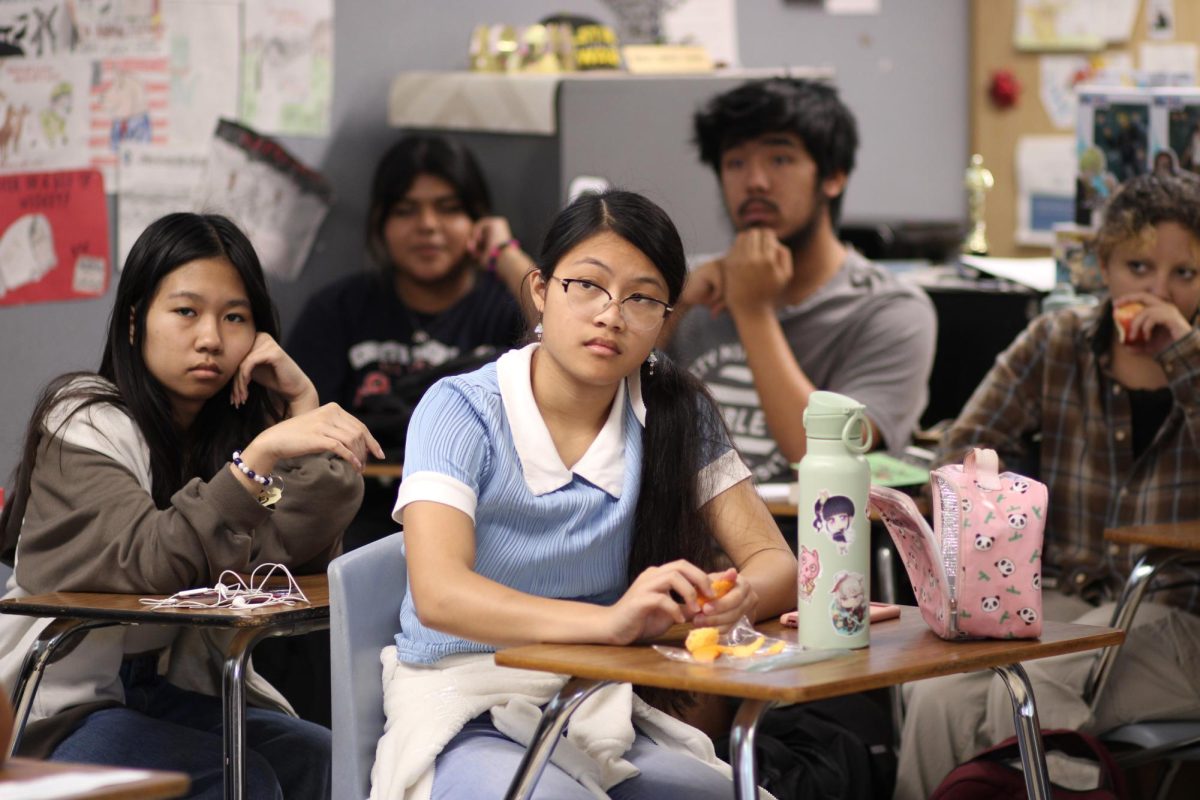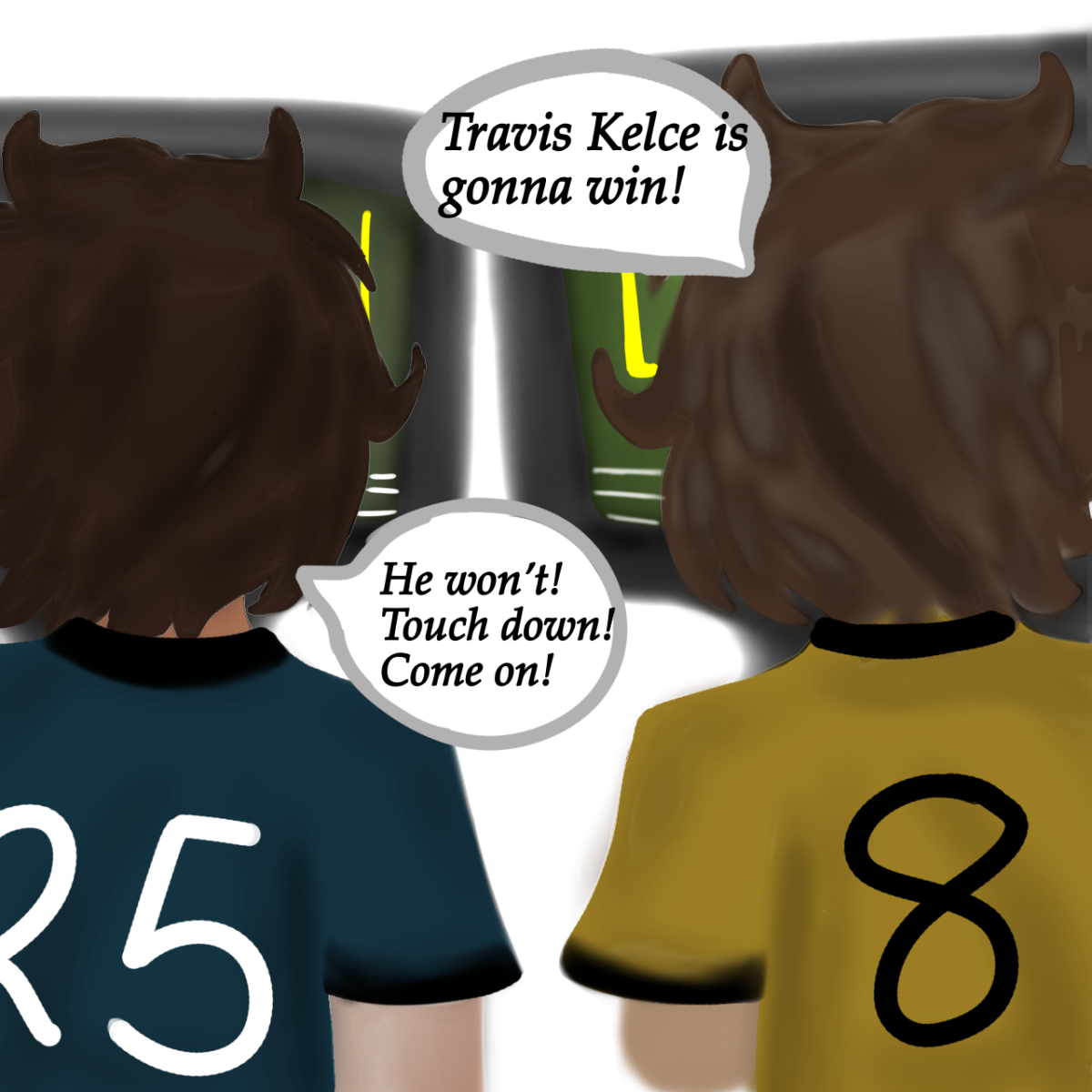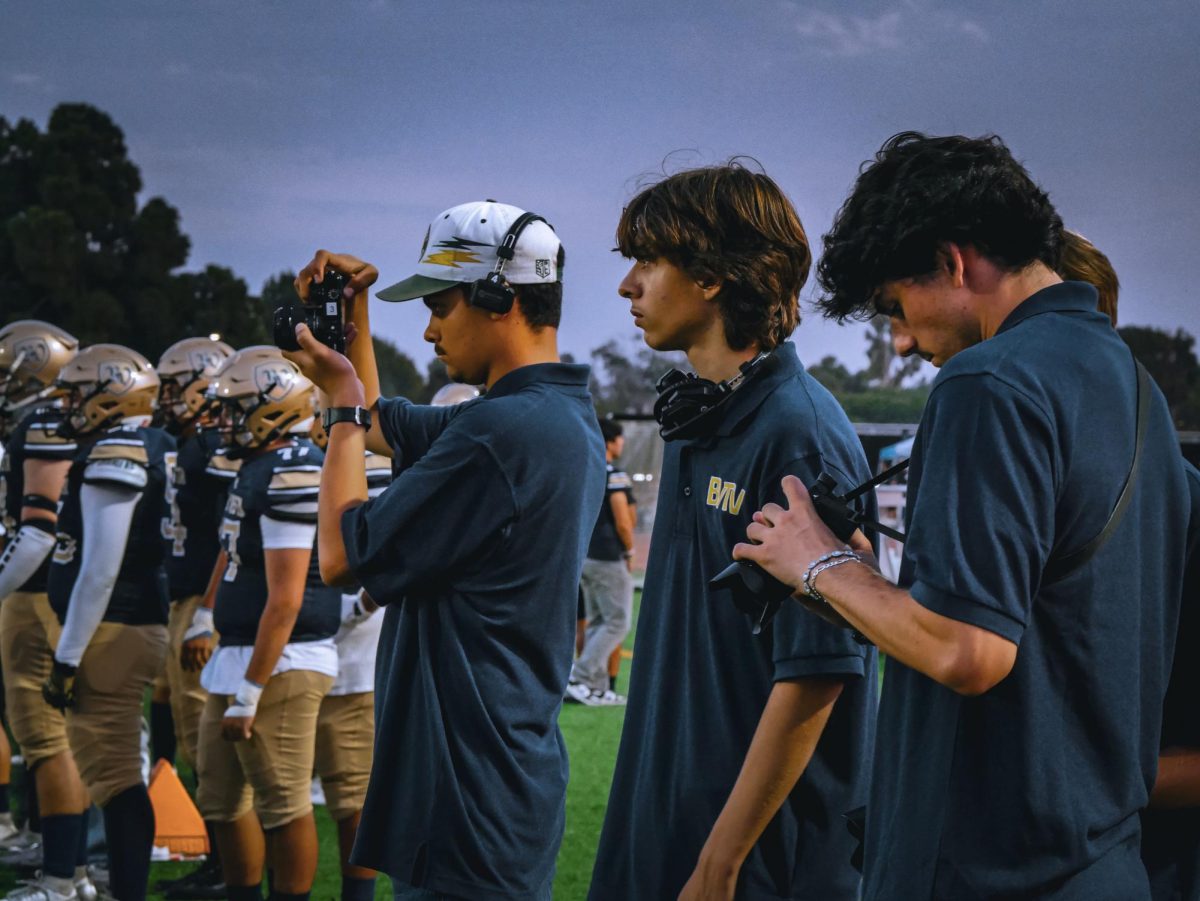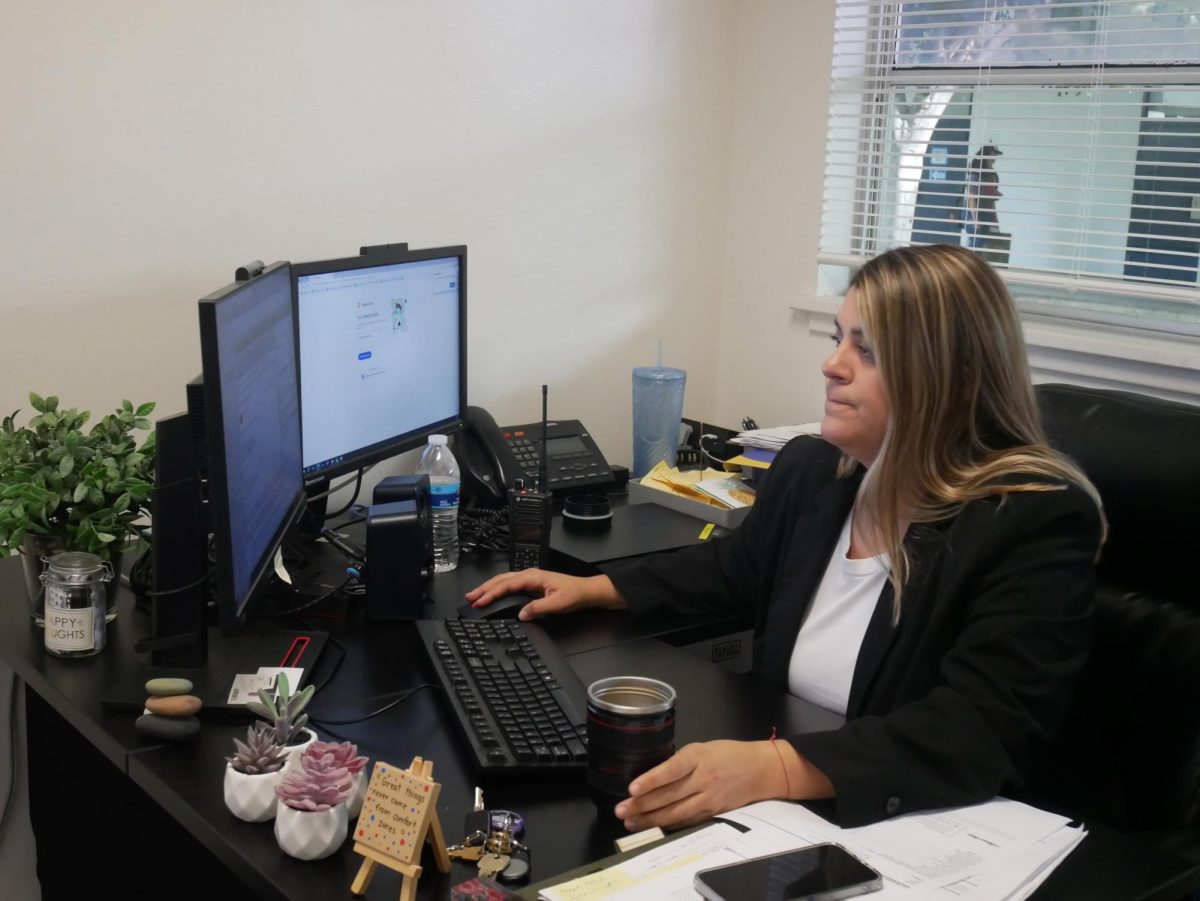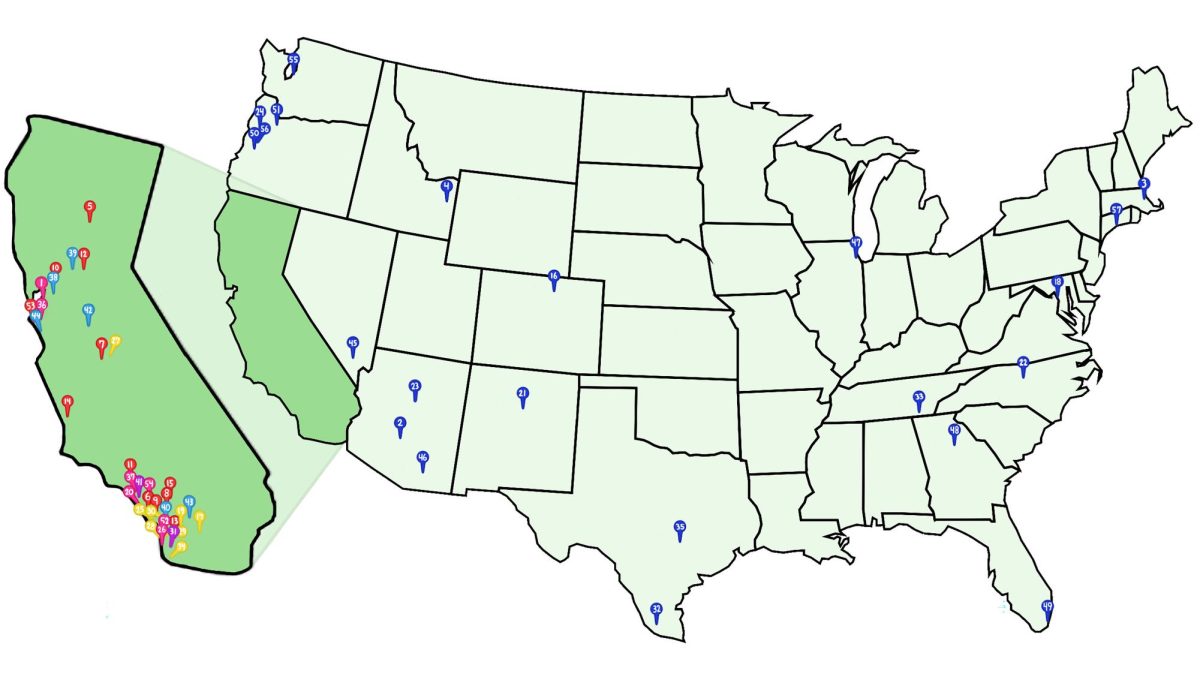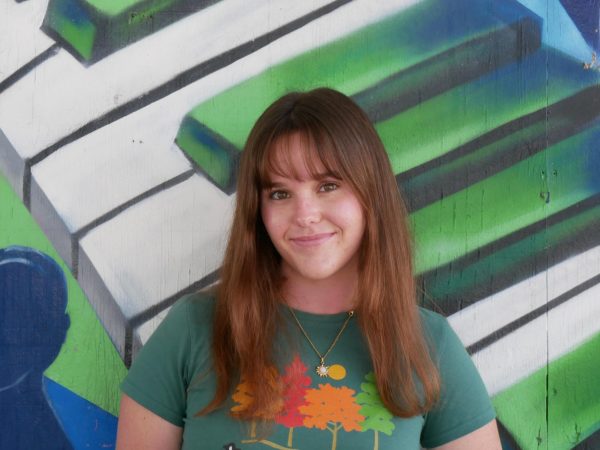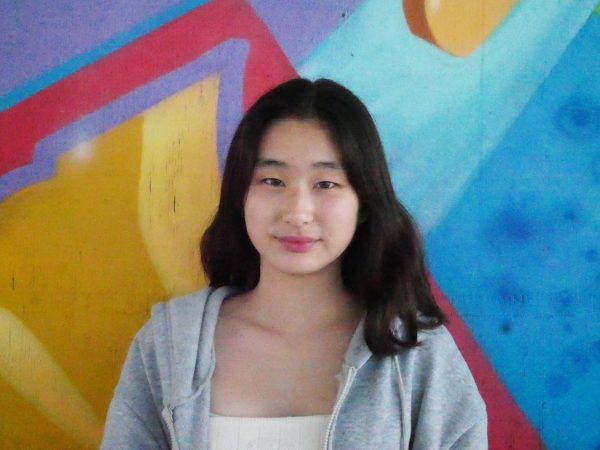For several years. Bonita Vista High (BVH) has welcomed Japanese delegates to our campus. On Aug. 7 of the 2023-2024 school year, Japanese delegates once again found their way to BVH, getting paired up with a host and essentially following them throughout their school day.
Attendance coordinator and math teacher Christina Ada played a big role in the delegate program at BVH. As part of her extra duties here on campus, Ada served as a liaison between the company that brings the foreign exchange students here—called EduAbroad—and the school. She organized the opening ceremony, matched up the students with their delegates and then organized the closing ceremony.
“About two to three months before we expect the Japanese delegates, they [EduAbroad] let me know how many are coming. We collect student interests, ages, and then I send out emails to our school to find out who is interested in hosting a Japanese delegate. Then I try to match up some of their favorite subjects and favorite foods, things like that, so that they have some things in common,” Ada said.
Several students signed up to take part in the delegate program this school year, one being junior Vivian Pruitt. Pruitt stood out among many of these hosts because while most BVH students become avid users of google translate during the delegate’s stay in order to communicate, Pruitt speaks fluent Japanese.
“My first language was English, but I learned Japanese because I went to a Japanese school in elementary. My mom really wanted her children to be more in touch with their culture, and she felt that in a global world it’s a really good skill to be able to speak two languages,” Pruitt said.
For Pruitt, being able to speak Japanese certainly played a role in her signing up to be a host. However, that had not been her only motive.
“I signed up because I thought it was cool to be able to connect to someone from a different country, especially from a country that I am well versed in. But really, I feel like the people who live there have different perspectives of American culture, and I wanted to see how they saw the world,” Pruitt said.
In greeting the delegates, the hosts waited in the cafeteria, writing down their class periods on a note card to give the delegates their schedules. Once the delegates arrived, the hosts set out to find their partners.
“It was like a scavenger hunt,” Pruitt said. “To greet them we introduced our names and we made a diagram of what we like [so we could] get to know each other.”
Pruitt was partnered up with junior Honoka Hibino, one of the many delegates welcomed to BVH. In writing this feature, Pruitt served as both a source and an interpreter for Hibino, all quotes of Hibino’s being directly derived from Pruitt’s translations. After meeting, Pruitt and Hibino filled out their diagrams, which Pruitt explains were quite helpful in getting to know each other.
“I feel like because we did the diagram, we found common topics to talk about during the day. It showed us that even though we’re from different countries we still have similarities,” Pruitt said.
Initially from the experience, Pruitt expected to simply get a friend that lives in a different country. She aimed to teach and learn about new things that both were unaware of, being that they are in two completely different high school systems. Hibino explains how Japan’s learning environment differs from BVH’s learning environment.
“At my school in Japan, they are more strict with certain things. You can’t eat during classes or do things like that,” Hibino said. “Another thing is, when we work on assignments—like a google slide for example—it is different because we would get more time to finish that assignment. Here, you guys would make it and present that same day. The time that we take on assignments is very different.”
For most students, the delegate program is usually a struggle because communication cannot flow smoothly and holding prolonged conversations becomes difficult. However, in Pruitt and Hibino’s case this was not an issue.
“The language barrier is a big part of this program. Some of my classmates also had delegates but because of the language barrier, there wasn’t as much communication between the two,” Pruitt said. “I felt that I was lucky to not have that language barrier because it made everything easier. We could converse about anything and you didn’t have to use a translator to show what you wanted to say.”
For Hibino, the language barrier between her and Pruitt’s classmates and teachers was a struggling part of the experience. She explains how different the English she has learned in school had been in comparison to the English she heard people speak in America.
“I am not good at memorizing words and nouns, but I can read simple sentences in English. In Japan we mostly learn writing English, not many people speak it. So I couldn’t understand the words perfectly. Real life English was much different than what I had learned at school,” Hibino said.
Though she was not totally versed in American English, Hibino used what she knew and tried her best to converse with students. Hibino explains what she utilized in order to communicate with those around her during the program despite the language barrier.
“I had to use my confidence and find motivation to try and talk to people. The people who I spoke with used easy English and key words, which made it easier to understand and talk to them,” Hibino said.
Hibino believes her teachers wanted her and the other delegates to learn how to communicate in English better and to improve their confidence in the language. Pruitt notes why she thinks this program is so important for developing communication in a new language.
“If you are put into an environment where they only speak a specific language, it’s easier than learning it in a class,” said Pruitt. “I think schools do these kinds of programs because being put in that environment of the language and culture [makes] you learn it better.”
While Hibino enjoyed her experience during the program, there is a lot she wishes she could have done differently. Most of all, she wished she had the chance to participate more in class.
“When it came to participating there was a lot of group work that involved having a computer and knowing what the topic was about. Because of those barriers, I couldn’t really participate as much as I would have liked,” Hibino said.
Pruitt similarly explained how she wished the school could have found a way to get the delegates more involved in the lessons during class. When it came down to how BVH can improve this experience for the delegates, Hibino described what could have been done for her to have learned more.
“I would have liked to see the textbooks to make it easier for me to understand what the teachers were talking about. They wouldn’t always explain to me what we were doing in class so I couldn’t understand, and having a textbook would have been helpful because I am more proficient in reading English,” Hibino said.
Hibino fondly mentions that one of her favorite experiences during her stay was in Jennifer Ekstein’s Environmental Systems and Societies class, where groups of students made mesocosms—a small jarred experimental system that examines a natural environment under controlled conditions.
“It was the most different and fun thing I did. Because we weren’t speaking much and it was mostly hands on, I could participate more. I was given things to do which made me feel more part of the team,” Hibino said.
Overall, both Pruitt and Hibino found the experience enriching in similar ways. Not only did they get to practice two respective languages—Japanese in Pruitt’s case and English in Hibino’s—but they both built a strong bond that they wish to maintain.
“It was a really good match between us. She’s super cheery, considerate, and she listens very well,” Pruitt said. “The back and forth of communication was great. She showed me her school and how she lived in Japan, and I was amazed at how different it was. I was just happy that I got such a kind delegate.”
While there were many valuable lessons to be learned within this program, Ada found that nothing compares to the strides her students make in understanding culture and communication. After observing the students sharing their schoolwork and communicating in class, Ada had several students ask her “when is the next group [of delegates] coming?”
“I think it helps remind us of how great differences in cultures can be. Just learning about a new culture, learning to communicate when there are barriers, and figuring out ways to do that is so important,” Ada said.
Pruitt and Hibino plan to keep in touch, stating that even though it was a short period of time they truly got to connect. Even with different school systems and cultures, the two grew an amazing bond during the week. Hibino mentions how now that she experienced this, she definitely wishes to return.
“It was really fun to be with Vivian,” Hibino said. “This was my first time coming to America. I definitely want to come back because I found that I understood English a lot better than I thought I would and it has motivated me to study English more and then come back.”

